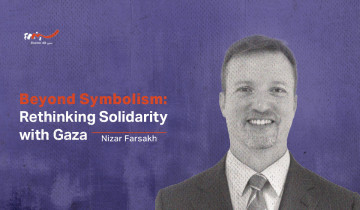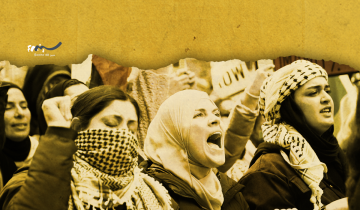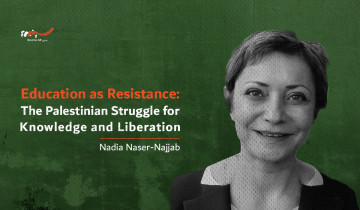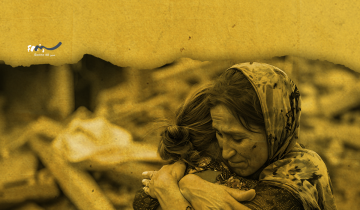Unity in Solidarity
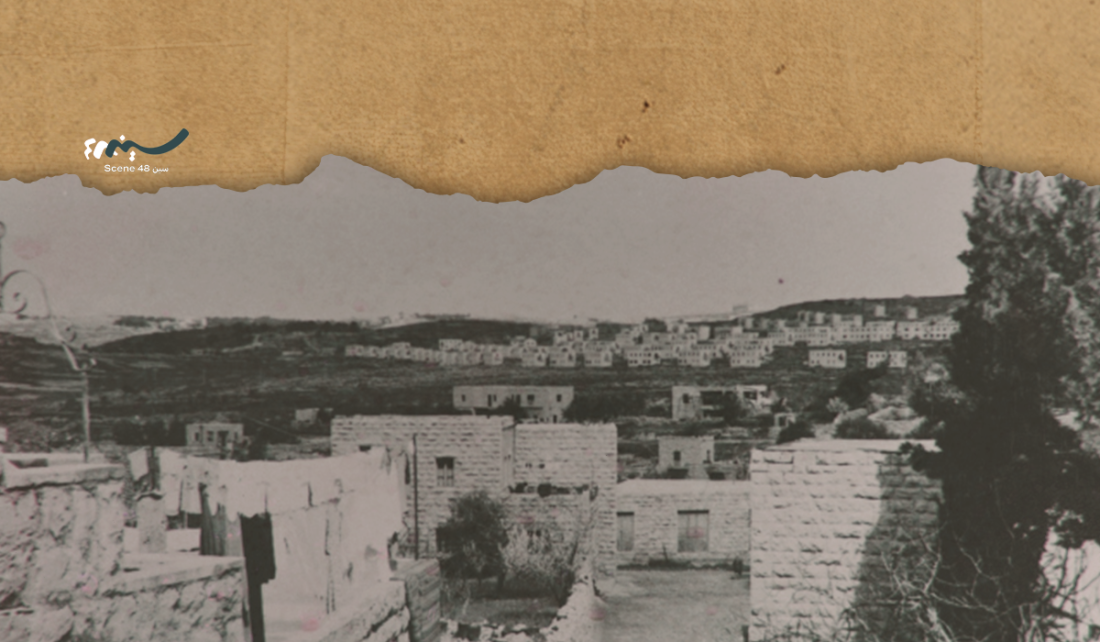
We have all watched with horror the genocidal war on Gaza. As a Palestinian in exile, I have watched not only with shocked disbelief but with a growing realization that the hypocrisy of the West and its agents is not only real, but much greater and more brazen than I had ever imagined. There is no subtlety in this war. The Palestinians stand alone, with a few valiant exceptions in neighboring countries, and they definitely do not qualify for the application of Western so-called values or international law.
I have also seen the faith and endurance of the people of Gaza and the rest of Palestine. During these long months, they have lost so much and yet show incredible steadfastness. But Palestinian losses are happening on fast forward. Not one single act perpetrated by Israel during this genocide was not inflicted on us before, but we have endured. This time, however, Israel is throwing everything at Gaza at once, on a massive scale and in accelerated time.
In the first months of the war, as I watched the formidable courage of bereaved parents saying, ‘Our loss is our sacrifice for Palestine,’ knowing there is no greater loss than the loss of a child, I began to wonder how, when Palestine is liberated, will we ever come close to matching such sacrifice—as Palestinians in general but especially those of us in the diaspora. How can we look them in the eye as we come to reclaim our homeland that they gave so much to liberate?
I firmly believe Palestine will be liberated. Throughout our region, we see imposing Crusader castles—once believed impenetrable—that now stand empty. Though their fall once seemed impossible, these foreign invaders were ultimately defeated, forcing European Christendom to abandon, or at least delay, its dreams of possessing the Holy Land and subjugating its people. The Crusaders also stole lands, spread death, created refugees, and allied with many local rulers, yet their reign ended. These massive stone walls, now home only to small reptiles, stand as enduring reminders that no foreign power can claim a lasting place among us.
Palestinians everywhere have contributed to keeping the cause of Palestine alive and keeping the Palestinians within Palestine and the refugee camps steadfast. Our woes began over a hundred years ago, yet we are still here, and we have millions of supporters. But our traditional methods of support now seem to be insufficient in the face of the Israeli juggernaut.
Yes, we have supported our families inside Palestine and helped build institutions, most notably educational ones, to keep traditions alive—like poetry, embroidery, food, and art. I am not saying my late grandmother would necessarily recognize how we have brought together the different elements of Palestine, with little heed to the distinctions between rural and urban cultures, for example, but as Palestinians we have all shared in building a culture of survival in the face of extermination.
The question remains: while those who stayed inside Palestine have given what is most precious to them—their children, their parents, their families, their blood and their homes—what can we, the ones in exile who have held on to our identity and passed it on to the generations after us, who will always live in hope and knowledge that we will return to our land, contribute to our beloved homeland and to our people?
I belong to the generation that grew up hearing about lost land—not some intangible mythical promised land, but actual land owned by my father and his family in our village of Beit Safafa, south of Jerusalem. I know the names of different parts of the village, of the surrounding villages and towns. My father took us there as children and explained the importance of the land to our identity. He knew every nook and cranny of that land. Although not as extensive as the orange groves of coastal Palestine or the holdings of the great landowning families, as fellahin, my relatives were very proud of the land they owned giving them local standing, identity, and a means of living. This land was largely expropriated to build the massive Israeli settlement of Gilo.
It seems to me that one of the greatest contributions Palestinians in exile can offer to those who have made profound sacrifices is a commitment to just and equitable solutions regarding land. As generations pass and families grow and spread, it may no longer be feasible to reclaim exact individual properties after independence. Therefore, a property fund should be established to thoughtfully and fairly address the redistribution of land and, where appropriate, the homes and structures upon it, among Palestinians. This process must be guided by principles of justice, respect for the rights of all residents, and a shared commitment to building a peaceful and inclusive future. Ultimately, all Palestinians should have a meaningful stake in the land of Palestine, honoring our history while working together toward coexistence and mutual recognition.
I am not under the illusion it will be easy. It will require a great deal of expertise to work out the details. It is, at the moment, a gesture, a way of bringing us even closer to each other, uniting us at a time when unity is crucial to our survival. A way of saying to the people in Palestine: “we are with you and will give whatever we can too. We are committed to us as a nation and a country, to us as a land and an identity. To us as Palestine.”
Houses of Beit Safafa, Jerusalem, in 1959, The Mustafa Othman Collection, The Palestinian Museum digital Archive.
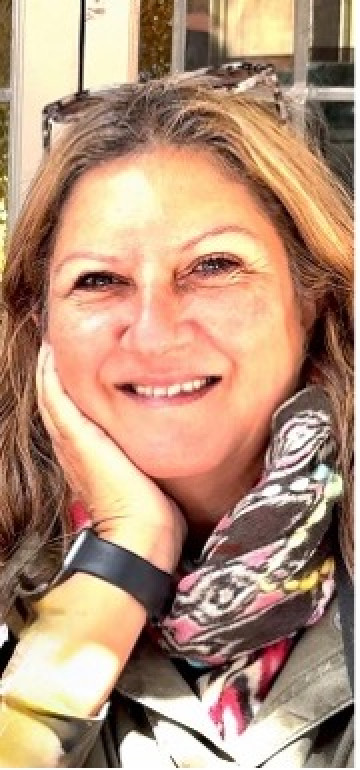
Dr Laila Othman Asser
Historian and translator. She is a Palestinian born in Beirut. She has a PhD from SOAS (1999) in Early Islamic History. She currently lives in the UK.
